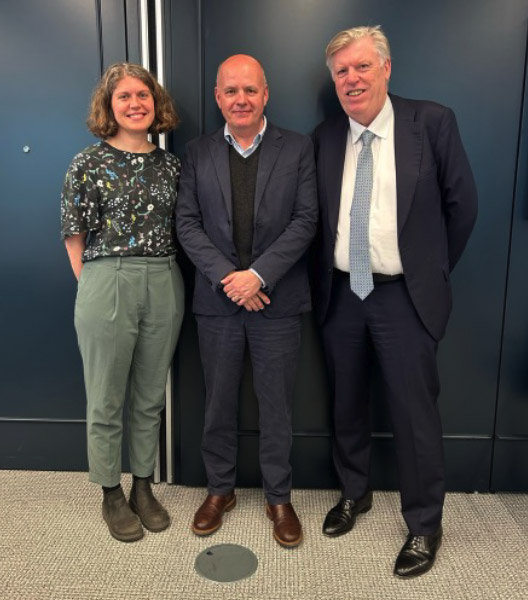Biological diversity (biodiversity) means the variety of life in all its forms, linked together in a complex web. One sobering thought is that up to 99% of species that have ever lived on earth are now extinct. As Carl Sagan put it:
“Extinction is the rule. Survival is the exception.”
Extinctions reflect the inability of species to adapt to their environment. Usually, they proceed almost invisibly in the background. Sometimes, however, rates rise dramatically, with five mass extinction waves in the earth´s history.
This does not imply we are all passive pawns in an environmental chess board. Complex species exert a reflexive impact on the environment as they struggle for survival. Birds make nests, beavers build dams, modifying nature as they go. As do we.
One recent human footprint on the natural world has been to raise the extinction of species far above background rates - a result of actions such as deforestation, poaching, and pollution. Moreover, surviving species have waning populations. Between 1970 and 2020, the average size of monitored wildlife populations has fallen by 73% (World Wildlife Fund Living Planet Report 2024).
Should we care?
Surely it is more important for the UK to pursue its current economic path, so-called ´securonomics´ that has GDP growth and national security as central pillars. Perhaps we should accept steep biodiversity decline. After all, nature has rebounded from five great traumas already, so why not one more?
There is one potential glitch - we wipe ourselves out as part of the exercise.
Biodiversity underpins nature, which in turn keeps us alive – it is as simple as that. Nature is a foundational asset, yielding benefits that include the provision of food, raw materials for industry, the regulation of our climate, and much more. Its intricate systems mitigate many risks to our health and prosperity. Higher on the pyramid of values, it provides the beauty of our coastlines, forests, and mountains.
An Investec seminar examined these issues with investors and financial experts. Heather Plumpton and Steve Coulter of the Green Alliance led the discussion, framed around the Dasgupta Review on biodiversity commissioned by the UK Treasury in 2021.
From a top-down perspective, Steve pointed out that over 70% of both the FTSE 100 and UK total lending depend on sustainable ecosystem services. However, while productive capital (machines, etc.) per person doubled between 1992-2014, natural capital, the source of these services, declined by 40%.
To date, the impairment has followed a linear trend. However, tipping points are a pervasive phenomenon of nature. If breached, some are irreversible.
The real golden rule is that nature is foundational to our economic system. Its structure is not something where we can take undue risk.
Nor can we afford to gift our common heritage to individual greed.
A starting point for reform is the principle of ´first do no harm´, when possible. Avoiding some of our environmental damage boils down to the enforcement of sensible laws, together with targeting subsidies to nature restoration, not to flagrant polluters. Prevention is easier than cure, conservation simpler than restoration, and less costly.
However, our modern lives inevitably harm the environment in unavoidable ways. To offset this, Steve developed various macro suggestions for fiscal and monetary reform. One idea that resonated well was to integrate natural capital into a revised national accounting framework including a proper societal balance sheet. This could facilitate long-term investment and act as a better policy anchor than current fiscal rules based on a myopic indicator of our wellbeing.
The ´finance gap ‘or the funding still needed to meet the UK´s nature restoration targets is over £4bn per year for the next decade.
Public money alone cannot provide this and is vulnerable to lobbying. Bureaucratic management may stifle entrepreneurship, with unintended consequences. We also need private innovation, and public-private collaboration. A pioneering example is Highland Rewilding, a private company supported by the National Wealth Fund (previously UKIB).
How might we create greater incentives for more business investment in nature? Heather discussed various micro policy options.
She argued that it is perfectly possible to make nature investable, by encouraging market processes to evolve - again a message that sat well with a city audience. Liquidity in nascent voluntary markets can be deepened by tightening disclosure and reporting standards. Smart regulation can directly create compliance markets. The UK Biodiversity Net Gain legislation introduced for housing and infrastructure can be rolled out more widely, drawing on lessons learned so far.
None of this is rocket science, just good economics. The imperative now is action.
The economist J.M. Keynes reminded us that “in the long run, we are all dead.” Right now, we are skating on thin ice. The risk is we are sunk in the short run, before the possibilities for our grandchildren can even unfold.
Further reading: Green Alliance - the nature of our economy: implementing the Dasgupta Review.

Dr Heather Plumpton
Dr Heather Plumpton is Head of Research at Green Alliance. Heather is an expert on the transition to a circular economy and the value of nature in economics. She has given evidence to the Environmental Audit Committee on the value of nature in the economy and how to get private finance flowing into nature restoration.
Dr Steve Coulter
Dr Steve Coulter is Head of Economy at Green Alliance, which he joined from the Tony Blair Institute. Steve’s focus is on green growth, skills, finance and industrial strategy. He is also a senior visiting fellow at the European Institute of the London School of Economics and was previously an economics and business journalist for BBC News.
Get Harold's Herald delivered to your inbox
Disclaimer: The blog does not aim to give investment advice, but is designed to afford relevant longer-term context to investors, encouraging a broad perspective where uncertainty is high and a spirit of learning is important. The views expressed are those of the author, not those of Investec.
Browse articles in

